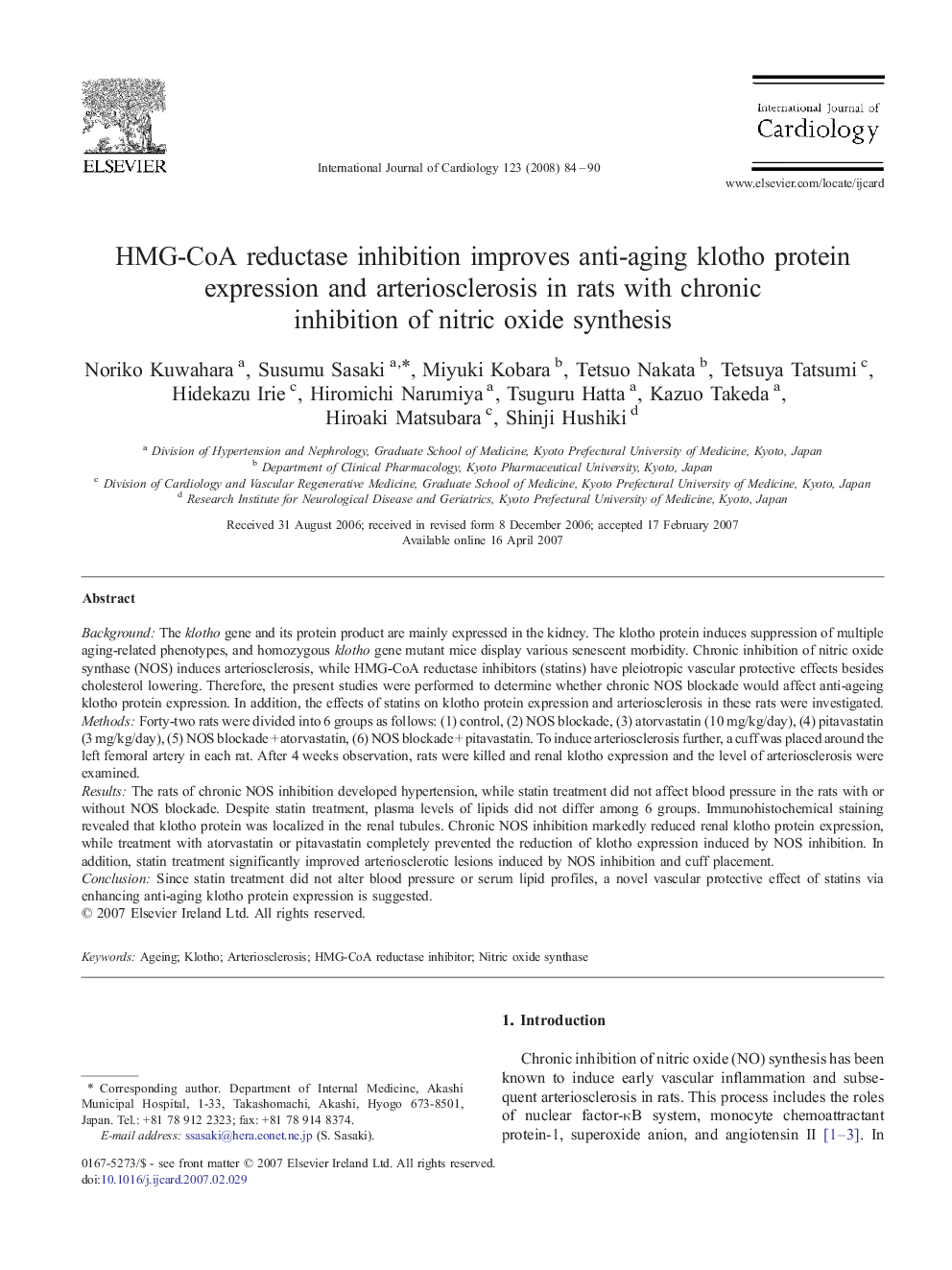| Article ID | Journal | Published Year | Pages | File Type |
|---|---|---|---|---|
| 2934499 | International Journal of Cardiology | 2008 | 7 Pages |
BackgroundThe klotho gene and its protein product are mainly expressed in the kidney. The klotho protein induces suppression of multiple aging-related phenotypes, and homozygous klotho gene mutant mice display various senescent morbidity. Chronic inhibition of nitric oxide synthase (NOS) induces arteriosclerosis, while HMG-CoA reductase inhibitors (statins) have pleiotropic vascular protective effects besides cholesterol lowering. Therefore, the present studies were performed to determine whether chronic NOS blockade would affect anti-ageing klotho protein expression. In addition, the effects of statins on klotho protein expression and arteriosclerosis in these rats were investigated.MethodsForty-two rats were divided into 6 groups as follows: (1) control, (2) NOS blockade, (3) atorvastatin (10 mg/kg/day), (4) pitavastatin (3 mg/kg/day), (5) NOS blockade + atorvastatin, (6) NOS blockade + pitavastatin. To induce arteriosclerosis further, a cuff was placed around the left femoral artery in each rat. After 4 weeks observation, rats were killed and renal klotho expression and the level of arteriosclerosis were examined.ResultsThe rats of chronic NOS inhibition developed hypertension, while statin treatment did not affect blood pressure in the rats with or without NOS blockade. Despite statin treatment, plasma levels of lipids did not differ among 6 groups. Immunohistochemical staining revealed that klotho protein was localized in the renal tubules. Chronic NOS inhibition markedly reduced renal klotho protein expression, while treatment with atorvastatin or pitavastatin completely prevented the reduction of klotho expression induced by NOS inhibition. In addition, statin treatment significantly improved arteriosclerotic lesions induced by NOS inhibition and cuff placement.ConclusionSince statin treatment did not alter blood pressure or serum lipid profiles, a novel vascular protective effect of statins via enhancing anti-aging klotho protein expression is suggested.
